NUS STEER Health and Humanity Xishuangbanna 2023: An eye-opening experience
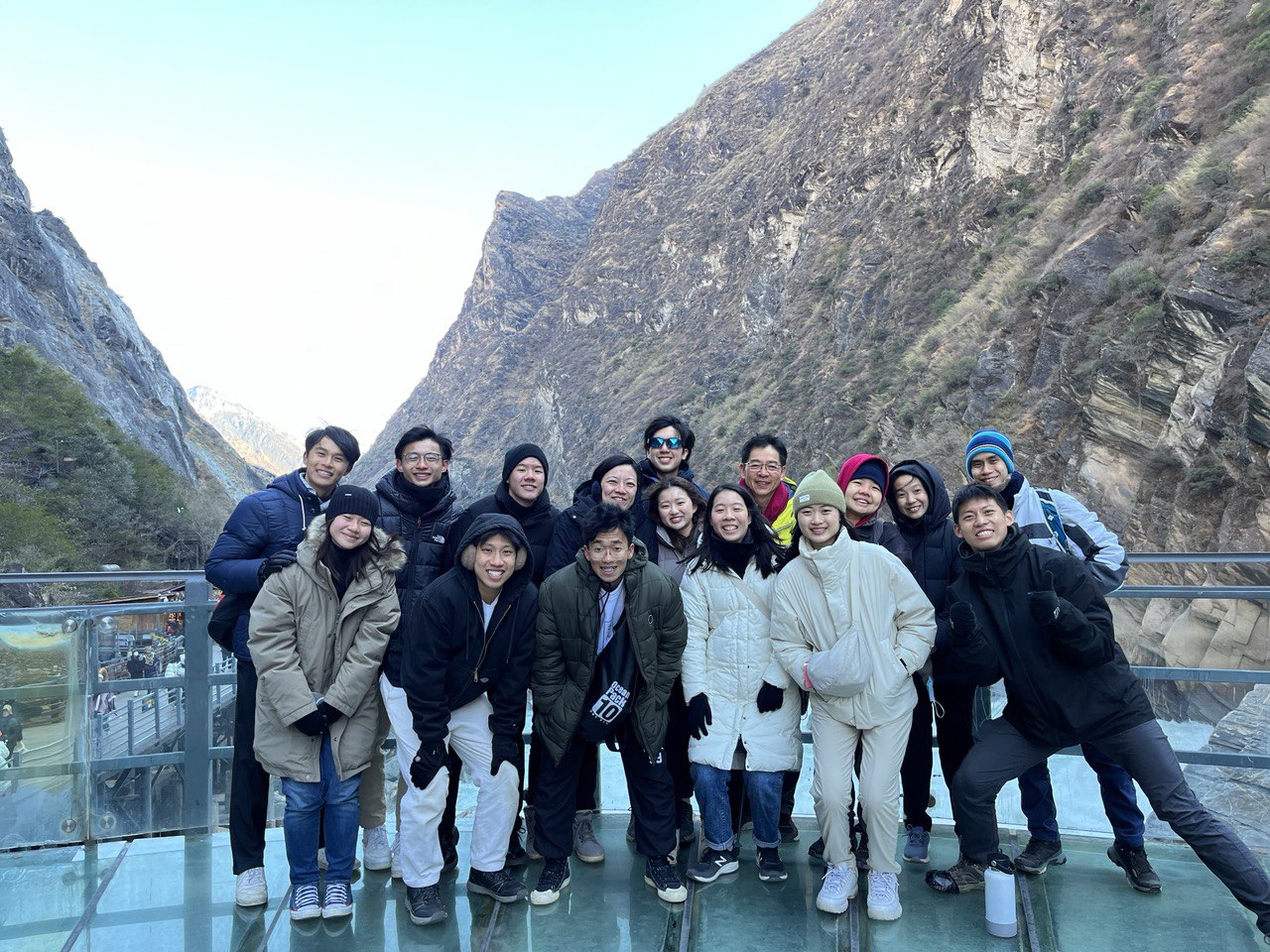
Team picture at Tiger Leaping Gorge
My name is Shanice Kwok and I am a Year 2 Pharmacy student. I was privileged to participate in the 12 days NUS Health and Humanity STEER Yunnan trip that started on 27 Dec 2023. STEER stands for Study Trip for Engagement and Enrichment. This STEER programme is organised by Yong Loo Lin School of Medicine and was led by Dr Blanche Lim and Dr Tan Lai Yong. We visited various parts of Yunnan, including Kunming City, Xishuangbanna and Lijiang, to learn more about how changes in employment, environment and regional development affect policies and the professionals in the healthcare sector, as well as how different or similar the healthcare beliefs and systems are as compared to Singapore. Additionally, we also learned more about community developments around this region of China and how the locals cope in their rapidly changing world.
Comprising of 17 students from Pharmacy, Medicine, Social Work, Nursing and Business, we spent the 12 days visiting many communities and learning from the people we met. These interactions have definitely opened my eyes to the needs of the people and how the various types of healthcare workers come together to serve these needs of the community.
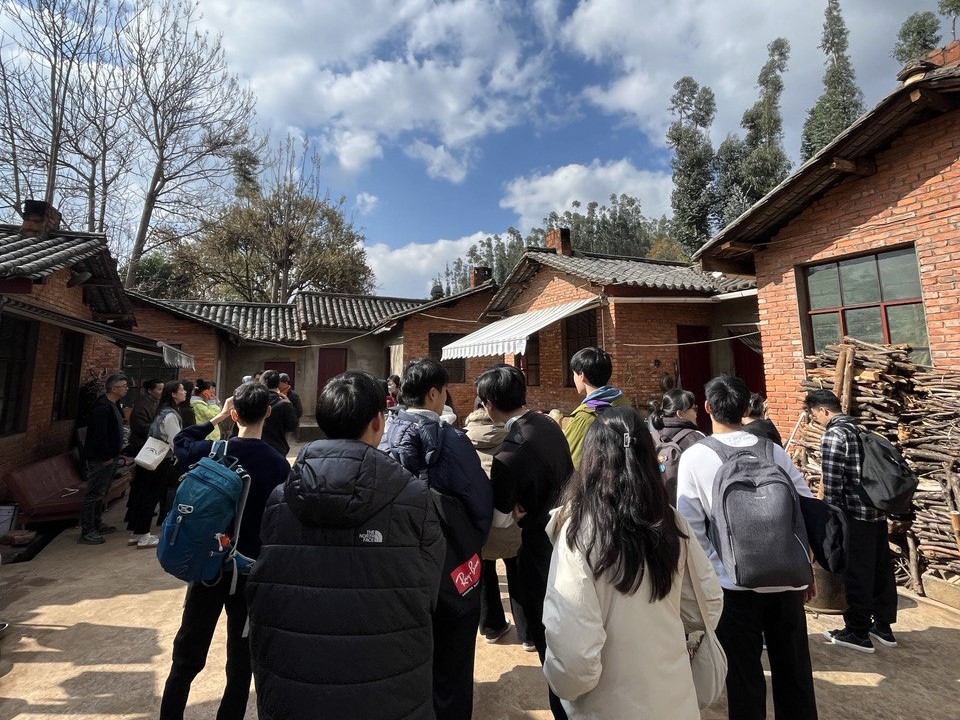
Picture taken at the Leprosy Rehabilitation Village
On the first day, we visited a leprosy rehabilitation village in a rather rural area, 3 hours’ drive from town. This village is one of the very few remaining villages housing elderlies who once suffered from this ancient disease. Apart from the secondary conditions like ulnar claw hands or missing fingers, the elderlies living in the village are completely free from leprosy. This village visit was extremely insightful because it has allowed me to see how such ancient disease can have present complications, and because of that, proper rehabilitation programmes need to be in place to help this group of people. This can also be applied back in Singapore where our ageing population is growing bigger and rehabilitation programmes will become even more important.
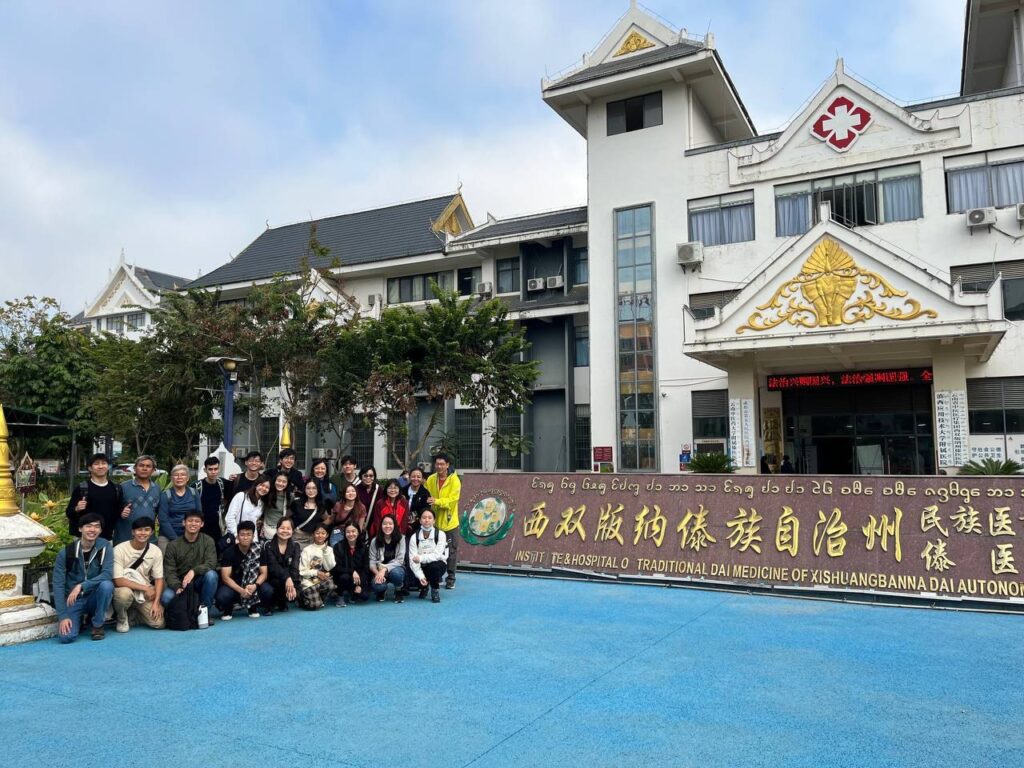
The main Dai Traditional Medicine Hospital in Xishuangbanna
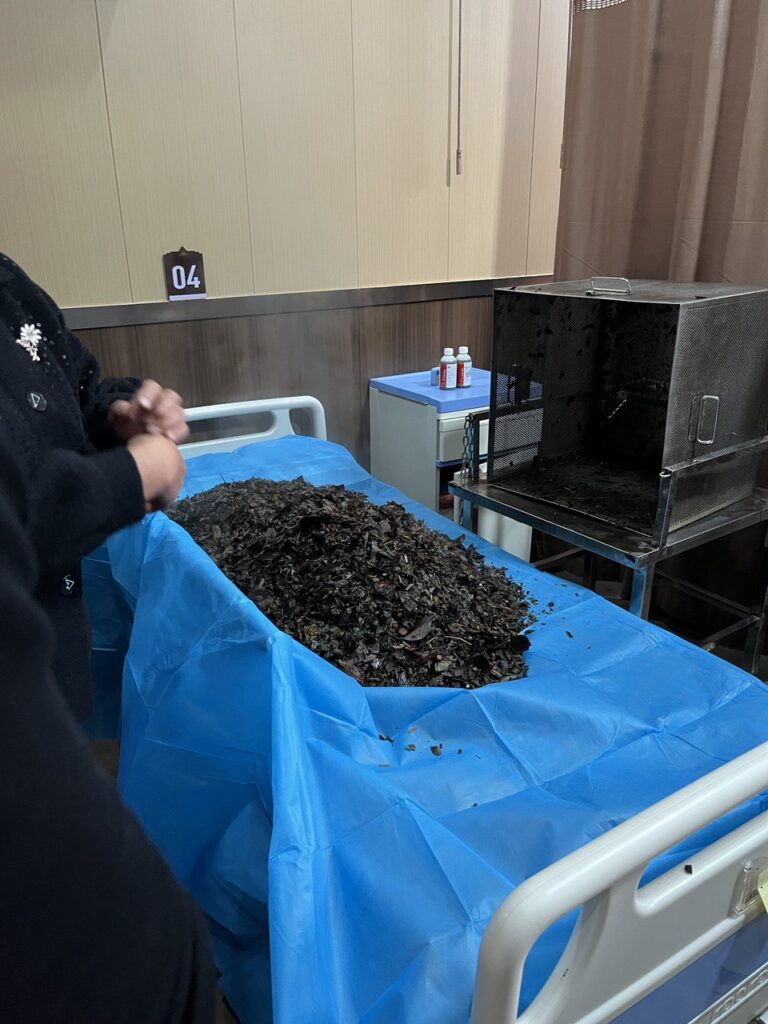
Herbs for the treatment of insomnia and rheumatism (the patient will be wrapped in the leaves for a specified period of time)
We also visited the main Dai Traditional Medicine Hospital in Xishuangbanna. The Dai people are an ethnic group of people living in Southern Yunnan, mainly in the Xishuangbanna Prefecture. The hospital we visited is special because there are doctors who can practice Western medicine as well as Dai traditional medicine. What was more special about the institution was that they planted their own herbs that they use to treat chronic conditions like high blood pressure and high cholesterol. At first, being a Pharmacy student, I was slightly skeptical about the use of traditional medications. However, after learning more about their culture as well as after speaking to Dai village doctors, I’ve come to realise that traditional and western medicine can work hand in hand to benefit the patients more holistically. Furthermore, I believe that the use of herbal medications will increase because of the rise in chronic diseases, its sustainability as well as benefits.
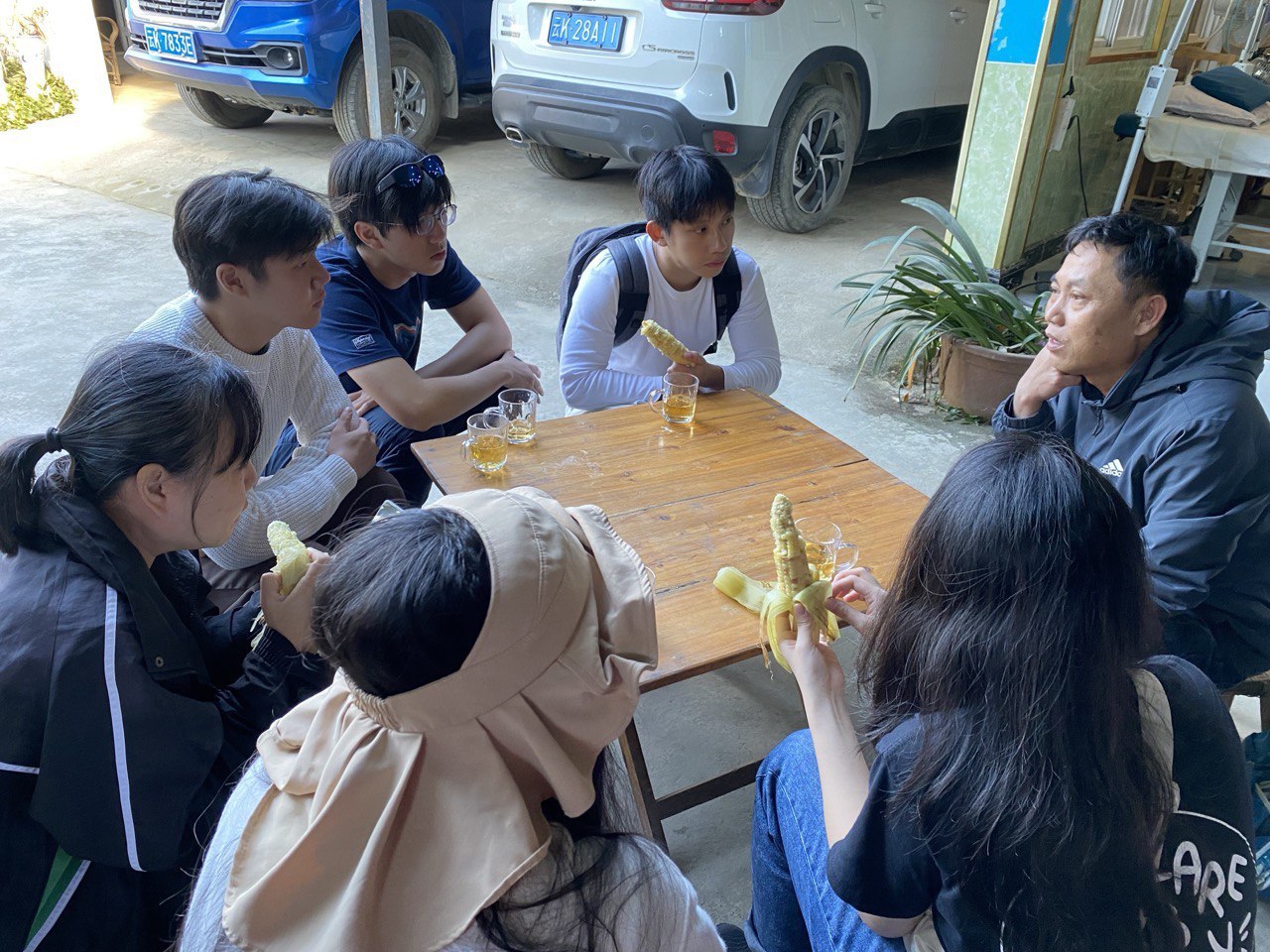
Getting to know a Dai village doctor to learn more about his work
We also visited a group of Dai village doctors, whose main focus is the primary care of the villagers living in the area. They are an incredible group of people because they not only look after 2000 patients each, but they also make it a point to visit the patients in their own homes, which greatly benefits those who are unable to walk or travel long distances. Singapore can definitely learn greatly from their example of being more community-centric, especially as the Healthier SG programme goes into full swing over the coming year.
In conclusion, this once-in-a-lifetime trip has broadened my horizons and allowed me to learn things that can only be learned outside the classroom setting. Interacting with the locals there has also given me greater insights into the different struggles that people worldwide face. It has also changed my perspective on health and health treatments and I hope to continue to apply all these learning as I continue my studies in Pharmacy, as well as beyond when I enter the workplace in the future.

Picture with Dr Tan (middle) and a fellow Pharmacy classmate!!
Article by Kwok Chin Yan, Shanice (Year 2 Pharmacy student)
Share this article:
Stay connected with NUS Pharmacy!
Receive PharmConnect Newsletters & announcements by NUS Pharmacy.
